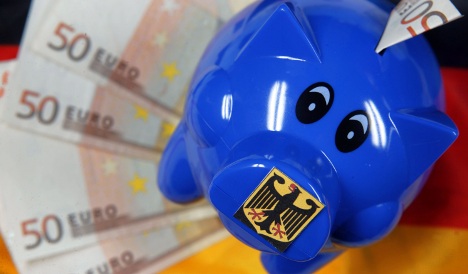The pro-business Free Democrats (FDP), the junior members of the coalition government, lost no time in reviving their core policy of simplifying the tax system and reducing taxes overall.
Calls for tax cuts came from FDP politicians and also members of Angela Merkel’s conservative Christian Democrats (CDU), despite Merkel’s own ruling out last month of cuts “in the foreseeable future” and her recent announcement of unprecedented national belt-tightening.
Economy Minister Rainer Brüderle, of the FDP, told Wednesday’s edition of the daily Süddeutsche Zeitung that tax cuts remained a key goal for the government, and Tuesday’s news that the budget deficit was in fact smaller than previously thought afforded the government a fresh opportunity.
“The tax cuts agreed to in the coalition deal haven’t been abolished, rather moved down the timeline,” Brüderle said.
He stressed that consolidating the national budget was the first priority but then added: “The more quickly and strongly we succeed at that, the more we can simplify the tax system and cut taxes.”
Brüderle said tax cuts could be introduced in this legislative period.
On Tuesday, reports emerged that, owing to unexpectedly higher tax revenue, lower labour market costs and the proceeds of mobile phone licenses, the 2010 deficit would be up to €20 billion smaller than forecast. Nevertheless, government sources had told Süddeutsche Zeitung that they planned to stick with their record austerity plan.
The budget deficit for this year is expected to be between €60 and €65 billion, while the situation in 2011 could see debt drop to €55 billion – compared to previous projections of almost €72 billion.
FDP tax specialist Daniel Volk said: “We have enough breathing space for a flattening of the rate for small business and a mitigation of cold progression.”
Cold progression refers to the way inflation pushes income earners into higher tax brackets, hiking up the total tax they pay unless the bracket thresholds are adjusted.
Finance policy spokesman for the parliamentary group of the CDU, Leo Dautzenberg, also declared himself open to lightening the load on taxpayers.
In the face of the improved budgetary situation, there was nothing to stop the government reducing the tax burden by €5 billion without the need for making savings elsewhere, he said.
The federal cabinet is set to announce the 2011 budget on July 7.



 Please whitelist us to continue reading.
Please whitelist us to continue reading.
Member comments